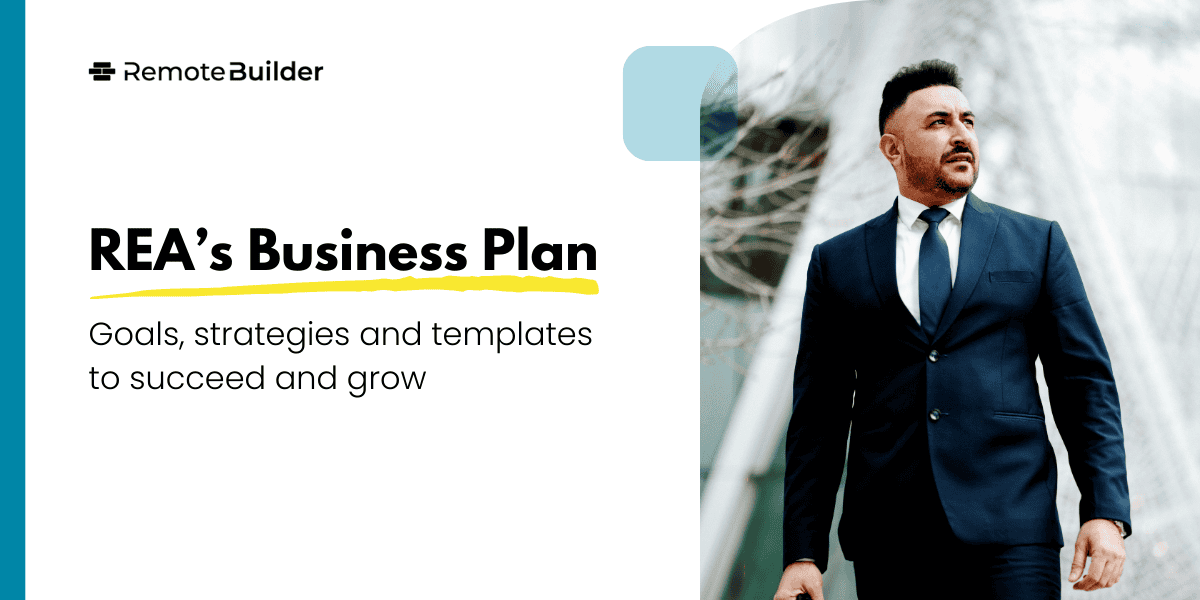The real estate industry is one of the most competitive and dynamic sectors in the market today. With rising client expectations, rapid technological advancements, and ever-shifting market trends, real estate agents can no longer afford to operate without a clear roadmap. Whether you’re just starting out or looking to scale your business to new heights, a well-crafted real estate agents business plan is the foundation of long-term success.
A business plan doesn’t just provide direction; it helps you stay accountable, forecast income, manage expenses, and evaluate what strategies are driving results. Think of it as your personal GPS for navigating the highs and lows of real estate in 2025.
Why every Real Estate Agent needs a business plan
Real estate agents often get caught up in the day-to-day hustle — showings, listings, networking, closings. But without a clear vision and structured plan, even the most energetic agent risks burnout and stagnation. That’s where a solid real estate agents business plan becomes invaluable.
Here’s why every agent needs one:
🎯 Strategic direction: A business plan forces you to define your objectives and craft a long-term vision. It answers vital questions like who your ideal clients are, what markets you want to dominate, and how you’ll achieve your income goals.
📈 Improved performance & profitability: By tracking key performance indicators (KPIs) such as lead-to-close ratio, average deal size, and monthly marketing ROI, you can continuously optimize for better outcomes.
🤝 Team alignment: If you work with a team or assistants, a business plan ensures everyone is rowing in the same direction.
💼 Resource allocation: Budget your time and money effectively, ensuring your investments (in ads, tools, or training) align with your revenue targets.
According to the National Association of Realtors (NAR), agents with business plans are significantly more likely to exceed their income goals compared to those without.
Setting SMART goals for your real estate business
Vague goals like “I want to make more money” or “I want more clients” are ineffective. SMART goals help transform ambiguous desires into actionable targets. SMART stands for:
- Specific: What exactly do you want to achieve?
- Measurable: Can you track your progress?
- Achievable: Is the goal realistic with your current resources?
- Relevant: Does this goal support your broader vision?
- Time-bound: When do you want to accomplish it?
Examples of SMART goals:
✅ Generate 50 new buyer leads per month through social media advertising.
✅ Close $10M in transactions by Q4 2025 through a mix of residential and vacation homes.
✅ Increase website traffic by 60% over the next 6 months through SEO and content marketing.
✅ Grow your email subscriber list to 2,000 prospects by September.
💡 Pro Tip: Use these goals to structure your weekly and monthly planning. If you’re working with clients in remote locations, consider how services like remote home renovation can help you streamline transactions and client satisfaction.
Key Components of a Real Estate Business Plan
A successful real estate agents business plan should go beyond just numbers. It needs to include strategic elements that guide how you operate daily, quarterly, and annually.
1. Executive summary
Summarize who you are, your unique positioning, and what you aim to accomplish in the year ahead. This section should include:
- Your mission statement
- Core services
- Geographical focus
- Revenue and transaction goals
2. Market analysis
Understanding your target market is non-negotiable. Analyze:
- Average home price trends in your area
- Demographic shifts (e.g., influx of remote workers)
- Competitor strategies and gaps
- Seasonality of sales cycles
Use tools like Zillow Research and Redfin Data Center to back your insights with data.
3. Target audience
Go beyond “anyone who wants to buy or sell.” Define segments clearly:
- First-time buyers aged 25–35
- High-net-worth investors interested in vacation homes
- Retirees relocating to warmer climates
- Property flippers seeking renovation-ready deals
- Tailor your messaging and marketing to resonate with these personas.
4. Marketing strategy
Map out your full marketing ecosystem:
- Website content + SEO blog strategy
- Organic and paid social media (Meta Ads, YouTube Shorts)
- Email marketing workflows
- Referral partnerships
- Open house and community event calendar
📅 Don’t forget to explore our Real Estate Agents Referral Program — a powerful passive income opportunity for agents with renovation-minded clients.
5. Financial Plan
Your financial plan should include:
- Income goals (monthly/quarterly)
- Commission forecast per deal type
- Operating expenses: marketing, tools, insurance, licenses
- Emergency reserve plan
- Tax planning and quarterly estimates
6. Operational Plan
Describe the systems and daily routines you’ll use to stay consistent:
- Lead nurturing workflows
- Task management tools (like Notion, Trello)
- Weekly goal-setting and review sessions
- Outsourcing or delegation plan (e.g., virtual assistant, transaction coordinator)
Sales & marketing strategies that work
Marketing today is about connection, not just promotion. Your real estate agents business plan should outline a balanced approach between online and offline tactics.
1. SEO & Blogging
Invest in long-form, keyword-optimized blog content. Focus on:
- Local market trends (e.g., “Best neighborhoods in Miami to buy in 2025”)
- Buyer and seller guides
- Financing tips
- Remote renovation services like RemoteBuilder
Use tools like Surfer SEO or Ahrefs to optimize and track.
2. Social Media Domination
Consistent, value-driven content builds trust.
- Showcase listings with Instagram Reels
- Host Facebook Live Q&As
- Share testimonials and behind-the-scenes content
- Use LinkedIn for networking with relocation and corporate HR departments
3. Email & SMS Campaigns
- Set up drip campaigns for buyers and sellers
- Send bi-weekly market insights
- Use SMS to confirm appointments or follow-up on open houses
Leverage RemoteBuilder’s Referral Program
RemoteBuilder’s Real Estate Agent Referral Program offers agents an additional revenue stream by referring clients in need of renovation before or after a sale. Ideal for:
- Out-of-state buyers
- Investment property owners
- Fix-and-flip clients
Tools & Templates to Use
Use these tools to streamline your operations and improve productivity:
| Category | Tool | Use Case |
| CRM | HubSpot, Follow Up Boss | Automate lead nurturing and client communication |
| Finance | QuickBooks, Google Sheets | Track income, expenses, and commission |
| Marketing | Canva | Design flyers, IG posts, infographics |
| Scheduling | Calendly | Streamline client meetings and showings |
| Project Management | Trello, Asana | Organize weekly and monthly goals |
| Research | Zillow Research, Redfin Data | Market stats and trends |
Scaling Your Real Estate Business
Once your foundational business plan is in place, think about how to scale:
- Expand your service areas to include emerging or high-growth markets.
- Build a team of buyer agents, listing specialists, and administrative support.
- Create strategic partnerships with mortgage brokers, contractors, and interior designers.
- Invest in video marketing — from YouTube channels to virtual property tours.
- Offer consulting or coaching to new agents as a secondary income stream.
Scaling successfully depends on systems, delegation, and maintaining brand consistency.
Common Mistakes to Avoid
Even with the best intentions, real estate agents often make avoidable mistakes when drafting or implementing a business plan:
❌ Overestimating short-term gains: Be ambitious but grounded.
❌ Failing to niche down: Trying to be everything to everyone leads to brand confusion.
❌ Neglecting marketing ROI tracking: Every dollar spent should tie back to performance.
❌ Not having an accountability partner or mentor: Regular check-ins can keep you aligned.
Conclusion
A powerful real estate agents business plan gives you more than just structure — it gives you clarity, consistency, and control over your future. In a market where attention spans are short and competition is high, the agents who plan ahead, embrace innovation, and stay focused on results are the ones who will dominate.





